A lack of diversity in the logistics industry and poor inclusion policies are not only stopping new talent from joining the sector, but also driving much-needed existing talent out. Automotive Logistics speaks to two of the women who broke the glass ceiling in automotive logistics – only to leave the sector altogether to join non-automotive roles that are more inclusive.
Three generations of Amy Broglin-Peterson’s family worked in the automotive industry before her. Her father, grandfather and great-grandfather all worked at Ford in various positions. She followed in their footsteps and shattered the glass ceiling in the process, becoming the first woman in four generations to work in the male-dominated sector.
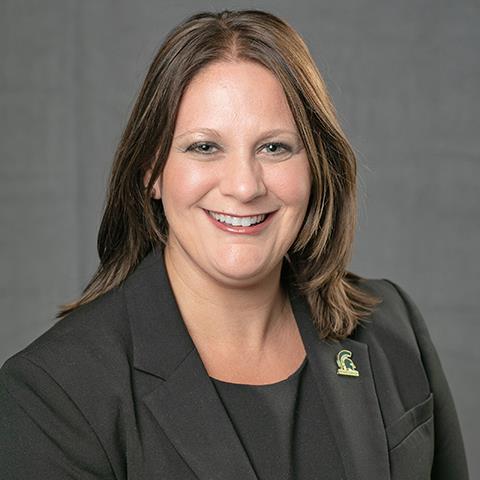
She went on to become an expert in automotive supply chain management, holding top management positions across some of the biggest automotive manufacturers, suppliers and logistics companies in the world. She expanded beyond the automotive supply chain and moved into other industries before coming back to automotive and bringing a broader experience of knowledge with her to top purchasing, supply chain and logistics roles.
But the lack of diversity and inclusion in the automotive logistics sector didn’t make it easy on her. “I felt like I had no choice but to leave the industry,” she tells Automotive Logistics.
Now, Broglin-Peterson teaches supply chain management at Michigan State University. “I see it as not just my job, but my duty to challenge the industry to change,” she says.
Retaining and securing top talent across logistics is crucial for the continued recovery and success of the automotive industry, but stories like Broglin-Peterson’s are still all too common, and the industry will keep losing talent until diversity and inclusion are improved.
Outdated policies
One of the problems in automotive logistics firms is that diversity and inclusion policies are outdated, off-putting new talent from joining and driving existing talent out.
“We need to ask if we as an industry really enable our women to stay with us, and what we are doing to help them,” Broglin-Peterson says. She says that at one of her previous jobs, the maternity policy “literally had been printed on a typewriter, the policy had not been updated in a decade and a half at least”.
She says she was “heartbroken” when she read the policy after falling pregnant. “It reiterated to me that I’m not going to be able to do this, because the policy basically said you get no paid time off afterwards,” she says. “I was afraid to even tell anybody that I was pregnant because I knew it would be a death knell on my job.”
This also extends to other policies, too. “You think about same sex marriage, health benefits, adoption, all these other diverse circumstances where policies aren’t updated,” she says. “What happens when you need to take care of elderly parents, or a sick spouse, or a sick child? These are the types of policies that should be common sense to have, but unfortunately they’re not. I would suggest many companies have not done much in terms of looking at some of these things and asking how it is helping or hurting their cause.”
As part of her role at Michigan State University, Broglin-Peterson is constantly speaking to young people who are ready to make their first steps into logistics and supply chain careers. She says that they want policies that support what they want and need within reason. “If you as an employer do not have policies that are friendly to young people, you are going to lose them,” she says. “Even if you’re not working in the human resources team, it’s incumbent for senior people in the industry to be pushing and challenging within their companies for policies conducive to diversity and inclusion.”
Broglin-Peterson adds that hiring more diverse young talent can only benefit the industry, with the vast spectrum of knowledge and experience that they already have. “The internships and types of projects that my students are working on now kind of astound me. They’re travelling, they’re working on data and analysis, they have skill sets that many companies want and need,” she says. “You also have to look at your customers, are they all white men in expensive suits? No, so if there was no other good reason to be diverse, then at least look at it as a different and meaningful way to connect with customers.”
People quit managers, not jobs
Improving diversity and inclusion needs to come from the top down, according to Amy Paulsen. She has held senior roles across industrial manufacturer Caterpillar, before holding leading logistics roles at Tesla, Rivian and other EV startups, but recently left the industry to found her own supply chain consultancy; she has also just taken on the role of vice-president of logistics and trade compliance at FIGS, a healthcare clothing brand.

She tells Automotive Logistics that the automotive industry is a mixed bag when it comes to attitudes and policies on diversity and inclusion. “I’ve had some great experiences, but I’ve also had some not great experiences, which over time have outweighed the great ones,” she says.
In fact, one of the reasons Paulsen was keen to join FIGS was because diversity and inclusion is central to their DNA. She says it was founded by two women, “the only publicly traded startup in the US founded by two women in fact,” and she says the team she is joining is ”small, mighty and inclusive, spanning gender, ethnicity and experience levels”.
Paulsen has also founded her own consulting firm, AMP Supply Chain Consulting, where she will continue in her role as Principle alongside her role at FIGS.
Interestingly, Paulsen says she felt gender biases more as she moved up in her career. “I didn’t feel a gender differential earlier in my career, but the more you’re promoted or the higher you might aspire in your career, the more you hit that barrier.” she says, “and it’s not just gender, it’s ethnicity and age and other factors too.”
Paulsen says that the culture in the automotive industry enables exclusive behaviour, and this flows down from the top at times. “I see a lot of stuff on LinkedIn about how people don’t quit bad jobs, they quit bad managers, and I think that’s really true,” she says. “But the flip side of that coin is there are some managers who I would have followed to any other company because working with them was such a great experience. I think you’ve got to have that presence of mind to be a manager that is aware of unconscious bias instead of looking for the person that fits the bill of who I want in a role.”
Broglin-Peterson agrees that sometimes, management can be the problem. She says that promoting inclusion means understanding different needs and abilities or disabilities, but says that some managers don’t necessarily understand or accept that when it comes to people needed time off work or flexible working.
“You need your manager’s approval for time off, but I think there are some problems in that,” she says. “If universally, human resources was the approver of benefits and policies like these, it would mean that you don’t have to go and tell your boss about your miscarriage, for example. Or if you have a manager who is a bully or the opposite sex or you disagree on things, it would mean you don’t have to constantly fight over the use of policy and how it’s being applied.”
She adds: “And don’t forget about the men, too. There are a lot of men in the logistics industry struggling that are pressured culturally to not show it. Men also need to be considered within diversity and inclusion because they have the same problems and sometimes more pressure to hide them. There is a big problem with suicide and depression and so it’s important for everybody to have avenues where they can take time off if they need it.”
Both Amy Broglin-Peterson and Amy Paulsen will be speaking at Automotive Logistics & Supply Chain Global, from 26-28 September in Dearborn, Michigan. Register now here.
How the industry can catch up
Paulsen says that one of the most important things that senior leaders in the industry can do is to educate themselves on diversity, and remember “it’s not just in terms of gender diversity, but also ethnicity and race and age and other dimensions too”.
“Awareness is how you can mitigate the problem,” Paulsen says. She has seen first hand how awareness and company culture helped combat exclusion. “There were grassroots organisations that existed at Lucid and a great inclusive culture at Rivian that really helped,” she says. She adds that management teams need to judge performance based on results and collaboration, rather than gender biases.
In hiring and promotions, she says it’s important that managers are not focused on a potential hire’s gender or race but are focused on experience instead. “I’ve seen some of that influence when managers and the management above them were very supportive and genderblind when hiring,” she says, “but when it came to promoting someone to a more senior position, then I really saw that most companies are still the typical white male-driven C-suite.”
Broglin-Peterson adds that getting young people into the industry means being more understanding and supportive, particularly through more flexible working. “Most of these young people coming into the workforce are going to be parents in the next five to ten years,” she says. “If we as an industry want to get serious about diversity and inclusion, we need to ask what we are doing to help them. Thinking of an eloquent way to challenge people to rise to that is really important of we want change to really occur in the industry.”
If the industry invests time and money into improving diversity and inclusion now, it could pay dividends in the future.
According to the Women Automotive Network, companies with diverse management teams have 19% higher revenue and are 70% more likely to capture new markets, with 12% higher productivity and 45% less turnover.
The bottom line is that diversity and inclusion ultimately affects the top line – and the industry can take advantage of this if it begins improving now.
Watch now: Securing top talent and developing skills in automotive logistics


























![Global[1]](https://d3n5uof8vony13.cloudfront.net/Pictures/web/a/d/s/global1_726550.svgz)




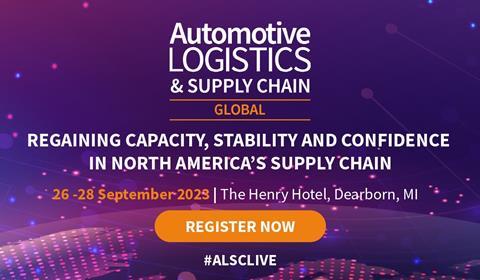
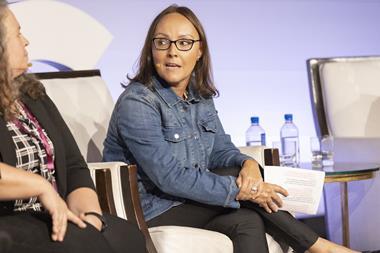
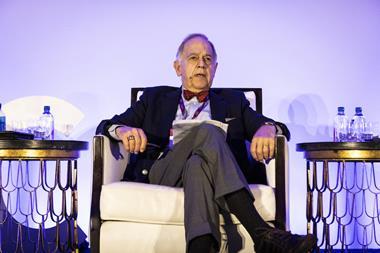

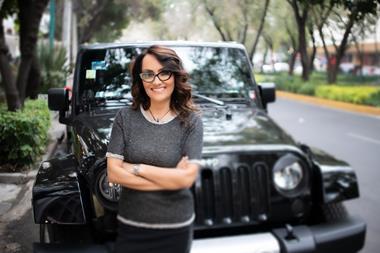
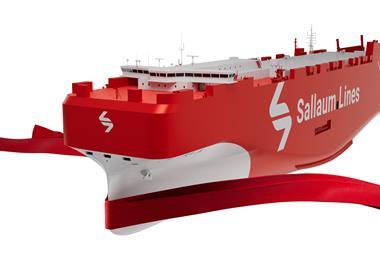
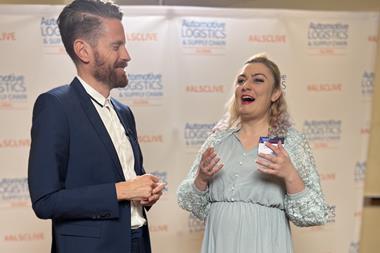



No comments yet